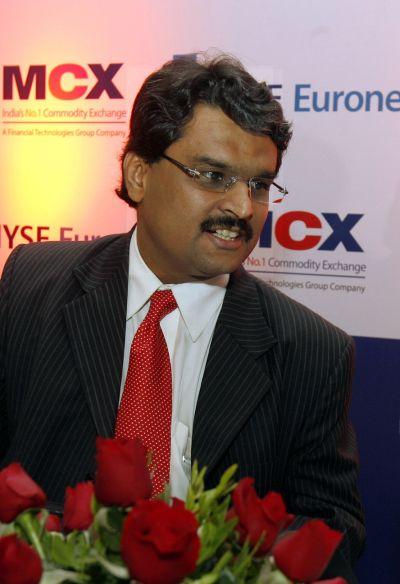
Before the showcause notice was issued, the authorities tightened all the loose ends.
They ensured operations of stock and commodity exchanges in the group were run by institutions and Shah’s options to visit abroad were closed.
The showcause notice by the Forwards Market Commission to promoters of National Spot Exchange Limited on Friday, including Jignesh Shah, is the culmination of a series of steps by the authorities to tighten the noose around Shah.
The 40-page showcause notice sent on Friday, questioned the ‘fit and proper’ status of Shah, chairman and group CEO of Financial Technologies India Ltd, Joseph Massey, managing director and CEO of MCX stock exchange and Shreekant Javalgekar, managing director and CEO of MCX.
. . .

All parties have been given two weeks to respond, after which FMC will take a final call on the issue.
If their fit and proper status is withdrawn, FTIL will have to sell its 26 per cent stake in commodity futures exchange MCX and give up directorship on any exchange regulated by the FMC.
The government, especially the finance ministry, had been setting the stage for Shah’s exit from the exchange business long ago.
Shah was in the crosshairs of the government since 2010, when the Securities Exchange Board of India, the regulator for the stock market, had issued a notice and passed an order on the same against Shah and his FTIL.
. . .
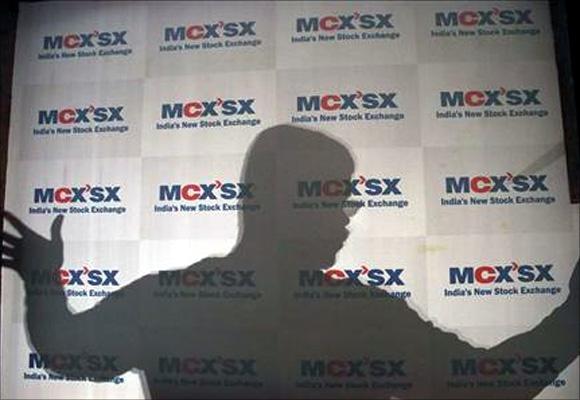
The matter had gone to the Supreme Court and Shah had won the case.
Few could have got an inkling that the government was planning to ensnare Shah when on February 9 this year, Finance Minister P Chidambaram inaugurated the equity segment of FTIL’s stock exchange, the MCX-SX. But the dislike on Chidambaram’s face was palpable.
Perhaps since then, preparations were on and by that time, the ministry of consumer affairs and the FMC had understood the modus operandi of the NSEL and were finalising the course of action against NSEL.
Simultaneously, the Reserve Bank of India was preparing to kill overseas ventures of Shah where he had floated five exchanges across the globe.
. . .

On April 25, RBI issued a circular asking Indian corporates to take permission in case their overseas ventures started under the direct investment route and if they wanted to offer any products related to commodities, currencies, stocks-indices with underlying assets in Indian markets.
This circular, among other implications, also badly impacted the FTIL-promoted Bahrain Financial Exchange, where rupee-dollar futures were traded.
Volumes after the RBI circular on that exchange dried out.
Shah’s other exchanges felt the tremors after NSEL suspended trading on July 31.
. . .
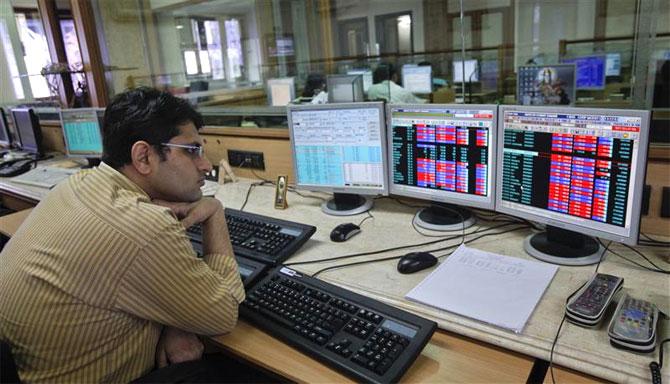
In July, the ministry of consumer affairs issued a directive to NSEL not to launch any new contract and to settle existing contracts on maturity.
This was asking the FTIL Group to virtually close the exchange. On July 31, NSEL suspended trading on the exchange of its own.
Within a week of the development, the FMC was moved to the ministry of finance, and direct action began.
And, after the default by the exchange, multi-agency probe began which included the Sebi, Enforcement Directorate, Income Tax, the economic offences wing of Mumbai Police, the ministry of company affairs (looking into violations of the Company Law by NSEL) and recently, the Central Bureau of Investigation.
. . .
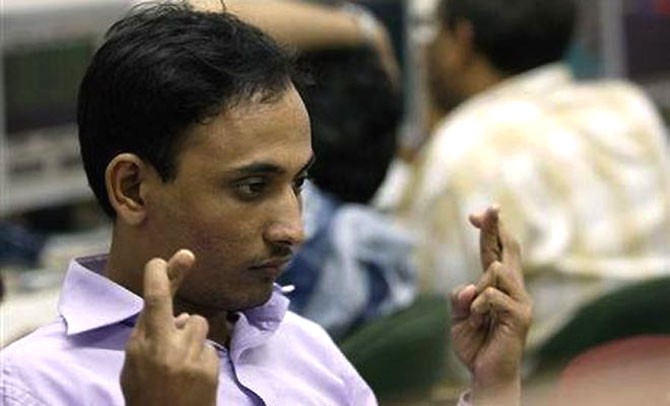
The key role was supposed to be played by FMC which had already indicated it might take action by declaring Shah and FTIL unfit to run the exchange business and ultimately did so.
Observers say when NSEL, which is facing a default of Rs 5,600 crore (Rs 56 billion), officially defaulted for the first time on August 20, FMC issued a warning that the ‘fit and proper’ status of the board and promoters of the
NSEL was at risk.
Before the showcause notice was issued, the authorities tightened all the loose ends.
They ensured operations of stock and commodity exchanges in the group were run by institutions and Shah’s options to visit abroad were closed.
. . .
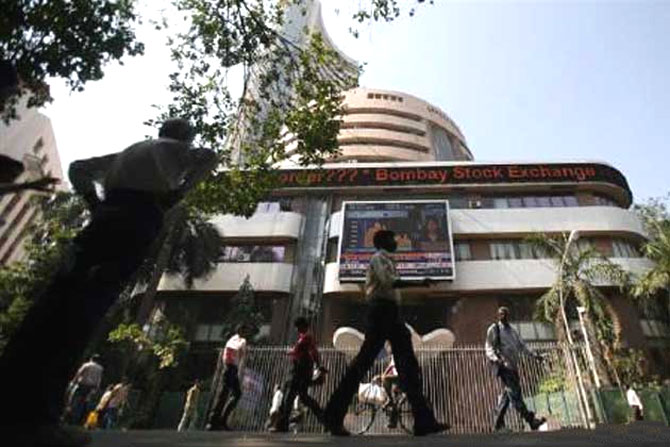
On September 15, the MCX SX’s licence came up for renewal and Sebi said the exchange should set up a committee comprising two Public Interest Directors and three nominees from institutional investors in MCX-SX to oversee the key functions of the exchange.
This is how the promoter’s role in managing the stock exchange was restricted, and FMC did a similar thing for all commodity exchanges. In case of MCX, the board representation of the FTIL Group fell to just two. More action on this front is expected soon by FMC.
Before issuing the showcause notice on Friday, FMC waited for the police to issue look-out notices for those against whom a FIR had been filed. If proved, it will put a full stop to Shah’s dreams of running any exchange in India as well as abroad.